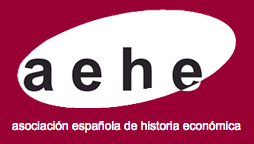Social capital in Eibar, 1886–1985: dimensions, institutions and outcomes
DOI:
https://doi.org/10.1016/j.ihe.2018.02.014Keywords:
Social capital, Knowledge spillovers, Social network analysis, Basque Country, D85, L14, R12, R58Abstract
It is widely accepted that the generation of knowledge and its diffusion is an important mechanism in order to promote innovation and entrepreneurship, but many studies over-estimate the importance of spillovers and do not explain the actual dissemination of know-how. This involves looking into social capital in order to analyze the channels of tacit knowledge and the players involved. This paper tackles the role of social relationships as facilitators of the industrialization process in Eibar, an old industrial town in the Basque Country. From a micro-level approach, and applying social network analysis, co-ownership links, old-school personal relationships, voluntary association, or family ties between companies are investigated. The evidence shows that there is an informal network that forms a remarkable alternative for official channels of interaction, and helps to understand the industrial dynamism of the town.
Downloads
Downloads
How to Cite
Issue
Section
License
Aquellos autores/as que tengan publicaciones con esta revista, aceptan los términos siguientes
- Los autores/as conservarán sus derechos de autor y garantizarán a la revista el derecho de primera publicación de su obra, el cuál estará simultáneamente sujeto a la Licencia de reconocimiento de Creative Commons Reconocimiento-No comercial-Sin obra derivada 4.0 Internacional que permite a terceros compartir la obra siempre que se indique su autor y su primera publicación esta revista, y no permite hacer uso comercial de la misma ni tampoco obras derivadas.
- Los autores/as podrán adoptar otros acuerdos de licencia no exclusiva de distribución de la versión de la obra publicada (p. ej.: depositarla en un archivo telemático institucional o publicarla en un volumen monográfico) siempre que se indique la publicación inicial en esta revista.
Plagio y fraude científico
La publicación de un trabajo que atente contra los derechos de propiedad intelectual será responsabilidad de los autores/as, que serán los que asuman los conflictos que pudieran tener lugar por razones de derechos de autor. Los conflictos más importantes pueden darse por la comisión de plagios y fraudes científicos.
Se entiende por plagio:
- Presentar el trabajo ajeno como propio.
- Adoptar palabras o ideas de otros autores sin el debido reconocimiento.
- No emplear las comillas u otro formato distintivo en una cita literal.
- Dar información incorrecta sobre la verdadera fuente de una cita.
- El parafraseo de una fuente sin mencionar la fuente.
- El parafraseo abusivo, incluso si se menciona la fuente.
Las prácticas constitutivas de fraude científico son las siguientes:
- Fabricación, falsificación u omisión de datos y plagio.
- Publicación duplicada.
- Conflictos de autoría.





